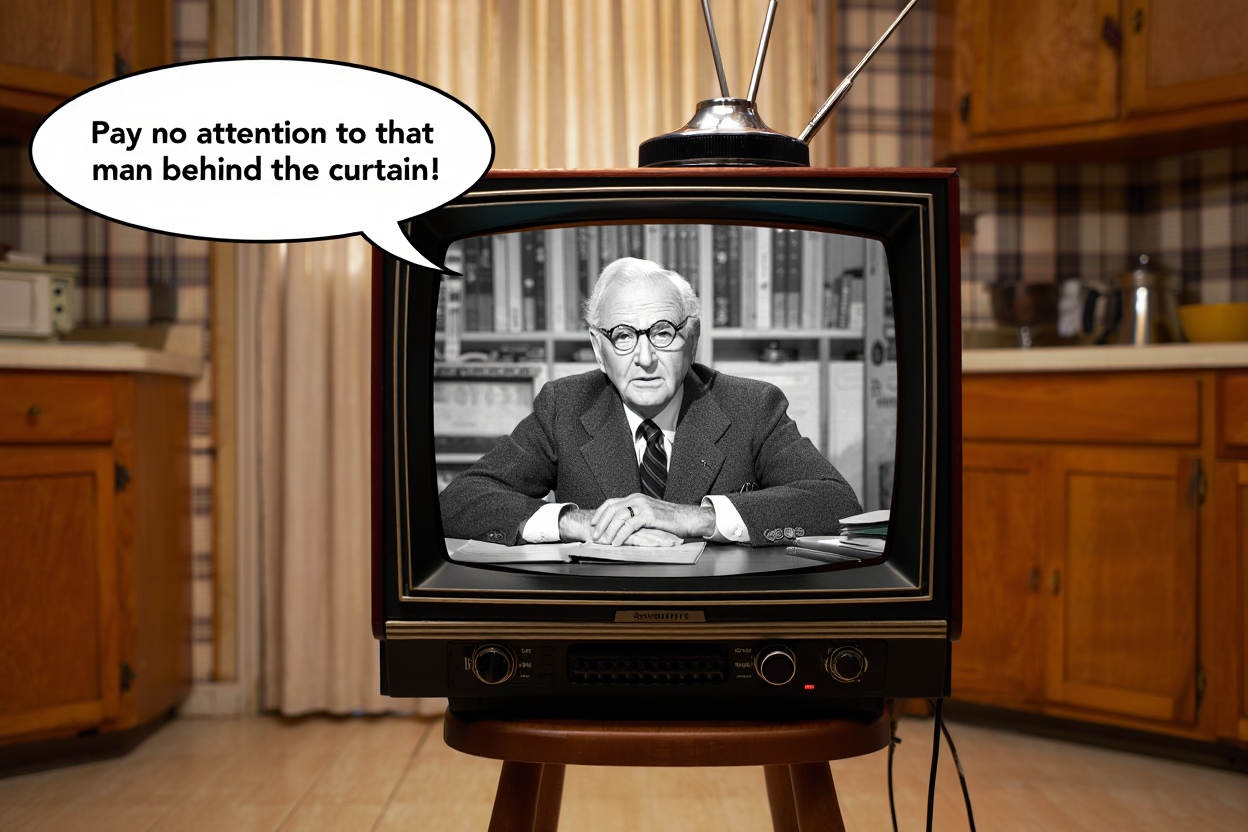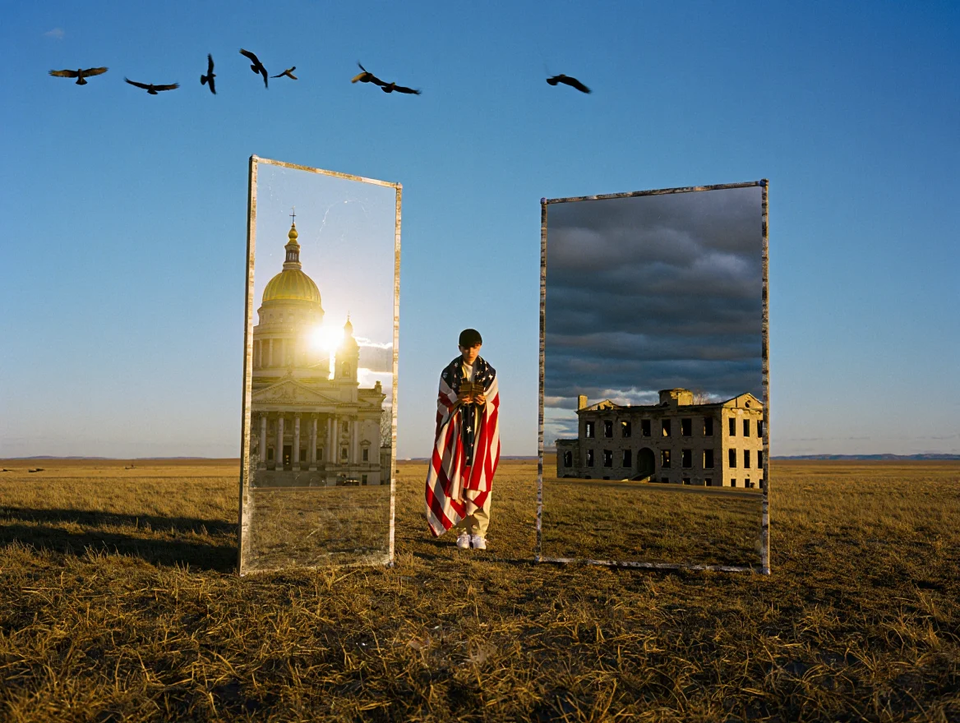Mediated "Truths": Critical Realism and the Modern Media Landscape in News as it Relates to Politics
You’re not seeing the world as it is. You’re seeing a media landscape shaped by interests, and cognitive framing, what passes for "truth" is more often a carefully constructed narrative. Understanding all this is essential to the survival of democracy in our representative republic.
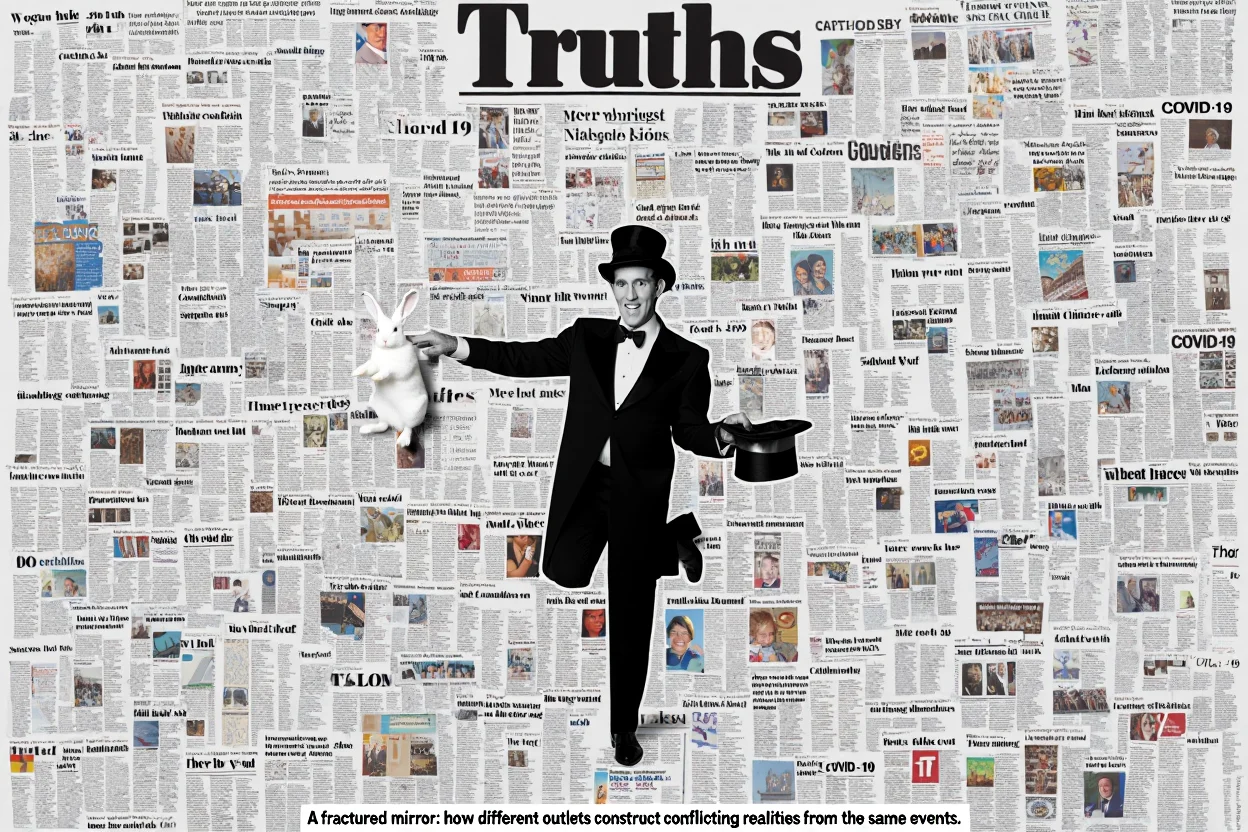
In an age saturated with news, the belief that we see the world “as it is” remains deceptively powerful. This belief, also known as naive realism, assumes that news outlets reflect objective reality; it imagines journalism as a transparent window onto the world, as it is, rather than a carefully crafted lens.
In the context of politics and media, this mindset is deeply problematic. It enables the spread of misinformation, fosters ideological entrenchment, and undermines democratic dialogue by encouraging audiences to view their preferred news source as uniquely truthful and any competing narrative as “fake news.”
Even the presence of commercial interests, appearing adjacent to the news being presented through advertising, imposes its constraints, thereby subtly shaping what can be shown, said, or prioritized as “truth”; the news business must sell advertising, and in that sense, adjancent business interest limits the spectrum of the public interest.
The theoretical lens of American Critical Realism offers an essential challenge to these views. It affirms that while reality exists independently of our perceptions, our understanding of it is always filtered through institutions, cultural frameworks, media practices, interests, and the inherent limitations of personal cognition.
From this perspective, news is not an unmediated mirror of events but a mediated interpretation shaped by economic incentives, editorial choices, and cultural assumptions. The claim to journalistic objectivity is, at best, a useful fiction; at worst, a cover for partisan framing.
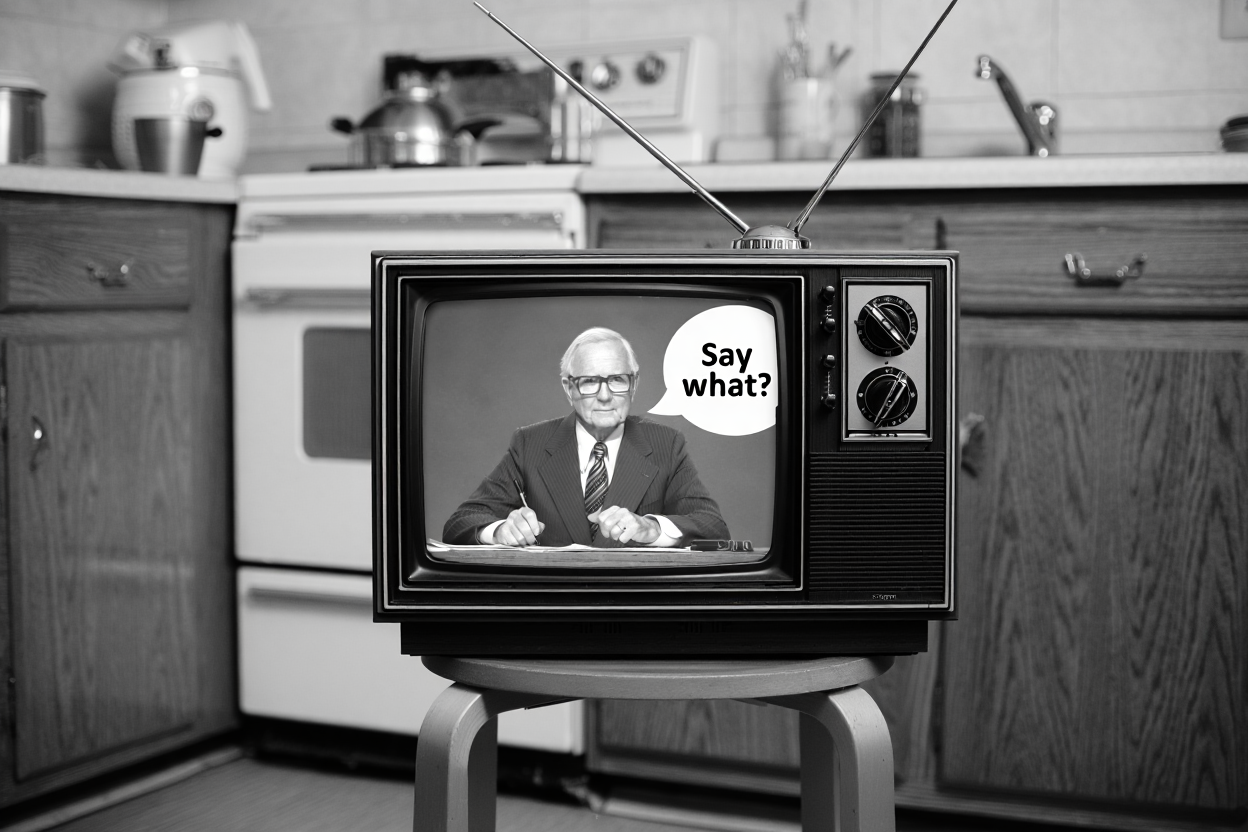
Nowhere is this shift in perspective more visible than in the evolution of the American media landscape, particularly since the rise of Fox News in 1996.
Founded to counter perceived liberal media bias, Fox News pioneered a model of overtly ideological journalism while still branding itself as “Fair and Balanced.” By appealing to the naive realism of its viewers, those predisposed to believe it showed the unvarnished truth, Fox News helped redefine objectivity as a contested political ideal. Its approach paved the way for a fragmented, partisan media environment.
Nevertheless, this shift has tangible effects on how individuals interpret the news. Cognitive frameworks, informed by political identity, cultural values, and experience, play a decisive role in shaping perception. The same immigration policy report, for example, may register as a call for compassion or a threat to national security depending on the reader’s prior commitments.
The reality is that we've always perceived things differently between the political left and the political right, and we always will, forever, until the end of time.
This subjective filtering explains why even shared facts fail to resolve debates. As critical realism highlights, we do not receive the world raw—we interpret it through stories.
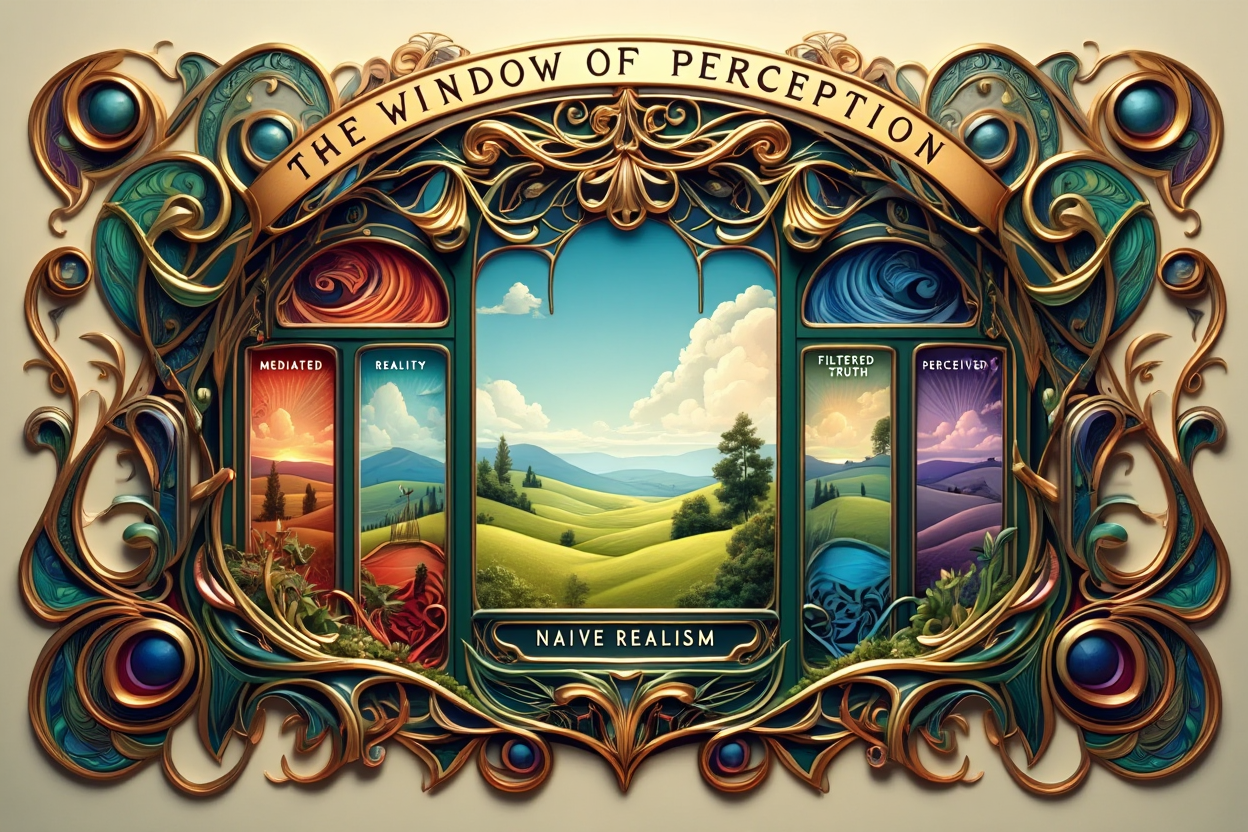
Political actors and interest groups understand this implicitly. They do not simply report on reality; they help construct it. Through agenda-setting and framing, they selectively elevate aspects of truth while marginalizing others.
This is evident in how climate change, healthcare, and social justice movements are variously portrayed as urgent moral imperatives or economic risks. Competing narratives about the same events reveal how public understanding is sculpted, not discovered.
The implications for democratic discourse are serious. Naive realism reinforces echo chambers and tribal thinking. It encourages citizens to dismiss contradictory information, labeling it as biased or false, rather than engaging with it critically.
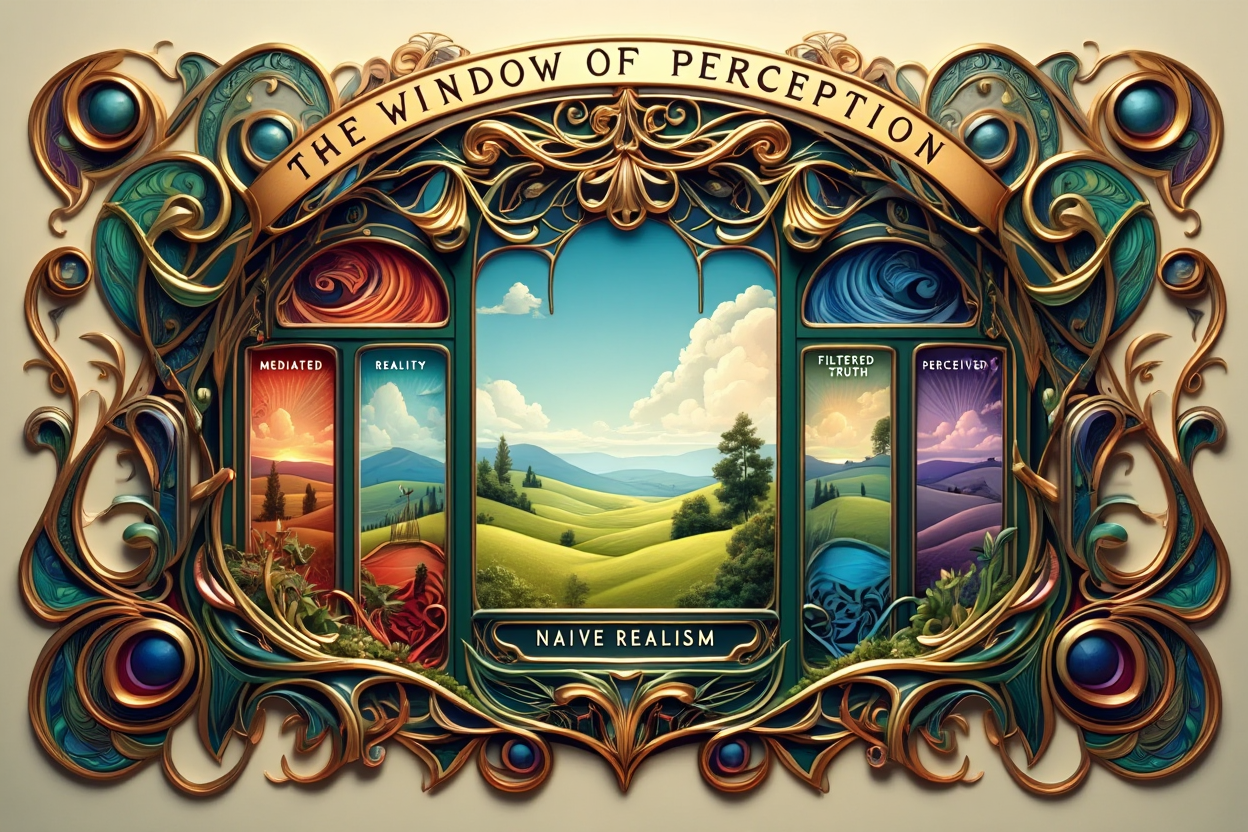
During the 2024 U.S. election cycle, for instance, misinformation flourished in these echo chambers, deepening mistrust in democratic institutions. Public health messaging during the COVID-19 pandemic suffered a similar fate. In both cases, naive realism undermined collective problem-solving by fragmenting shared reality.
By contrast, critical realism offers a path toward democratic renewal. It invites a shift from certainty to humility—from passive consumption to critical engagement. Initiatives in media literacy, fact-checking, and cross-partisan dialogue aim to foster this epistemological humility. By recognizing that all knowledge is mediated, citizens can better resist manipulative narratives, question their own biases, and engage more productively with disagreement.
This shift also demands a rethinking of what we expect from news. Rather than just explanation and prediction, cause and effect, who’s up and who’s down, and who's gonna be up or down next, we need more interpretation and understanding.
Complex issues like climate policy, immigration, and economic inequality cannot be reduced to summative soundbites or predictive forecasts. Instead of the horse race, they demand engagement with context, history, and lived experience. A democratic society that values understanding over certainty is better equipped to face uncertainty with resilience.
Ultimately, naive realism, critical realism, and media mediation are not abstract theories; they are forces shaping how we perceive the world and relate to each other with emotional intelligence and acceptance that differences in perception exist and they always will.
In an era of disinformation and division, recognizing the socially constructed nature of our knowledge is not just an academic insight; it is a civic responsibility.


